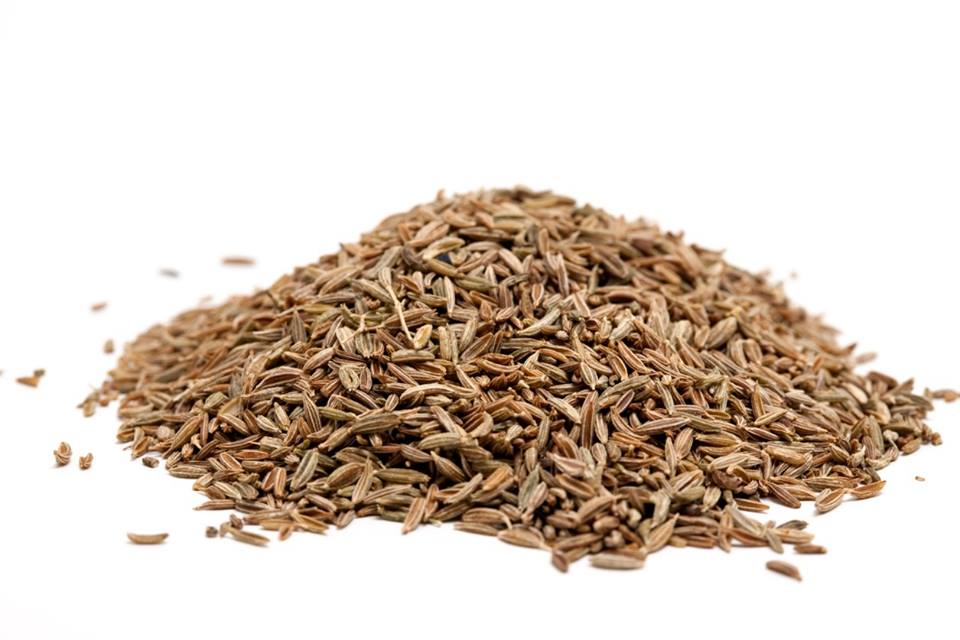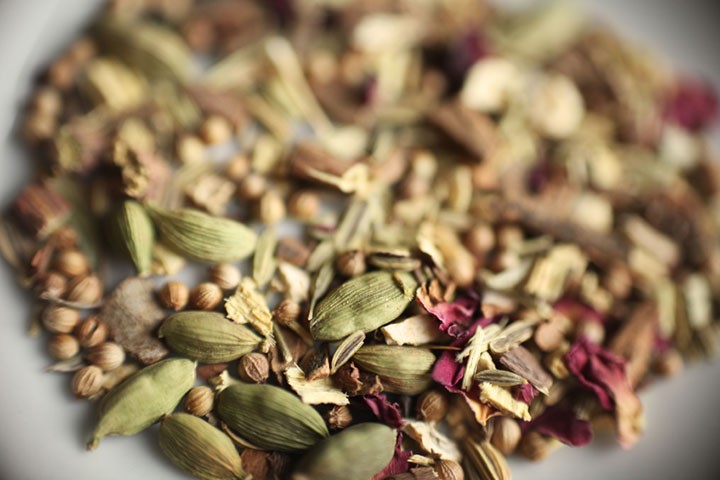In Sanskrit, Cumin is known as jiraka. Jira means “that which helps digestion”. Ayurveda considers jiraka as one of the best digestive tonics. Some of the Ayurvedic health benefits of cumin are that it dispels gas, eliminates toxins, is a mild laxative, and is anti-inflammatory.
Because it’s so easily digested and so effective in expelling gas from the stomach and the intestines, it’s used for chronic dysentery and diarrhea. Cumin kindles the gastric fire or the agni and improves the absorption of minerals in the intestines.
Scientific research has found that cumin may stimulate the secretion of pancreatic enzymes, which are key factors in proper digestion and nutrient assimilation. The spice’s digestive stimulating properties are attributable to its content of volatile oils.
Just the smell of cumin starts enhancing digestion. The smell activates salivary glands. The compound Thymol is found in cumin, and it activates the pancreas to secrete digestive enzymes, as well as bile, to stimulate digestion. Quite often, gas is caused when food is digested slowly or incompletely. In these instances, food ferments in the stomach and thus produces gas. Cumin seeds, whose scientific name is Cuminum cyminum, are also a very good source of iron
Additionally, cumin has anti-oxidant properties to protect the body from free radicals. Roasted cumin powder can be used for ulcerative colitis, diverticulitis, and chronic malabsorption. Cumin is an anti-dote to morning sickness. Nursing mothers find cumin to be lactogenic, increasing the flow of mother’s milk, while its oil is effective against eczema.
Here are some simple home remedies involving cumin:
- For chronic indigestion and malabsorption, chew 1 teaspoon of roasted cumin and fennel seeds daily.
- To reduce fever, mix equal parts of cumin, coriander, and fennel seeds. Add 1 teaspoon of this to 1 cup boiling water. Steep for 10 minutes and drink.
- For stomach pain, make a mixture of 1/3 teaspoon of cumin powder, a pinch of asafetida powder (hing), and a pinch of rock salt. Mix and chew well. Then follow with warm water.
- For nausea or an upset stomach, make a tea from 1 teaspoon cumin seeds and a pinch of nutmeg powder in 1 cup hot water. Steep for 10 minutes and then drink.
- For relief from menstrual pain, roast cumin seeds in an ungreased iron pan until they smell pungent. Chew a spoonful slowly, and then take 1 tablespoon aloe vera juice.
Cumin has long been used for its medicinal properties. Studies also show that cumin seeds may contain anti-cancer properties. Cumin was shown to protect from the development of stomach or liver tumors. This effect may be attributable to cumin’s strong free-radical scavenging abilities, along with its capacity to enhance the liver’s detoxification enzymes.
Furthermore, a recent study has found that cumin has the ability to enhance memory and relieve stress.










